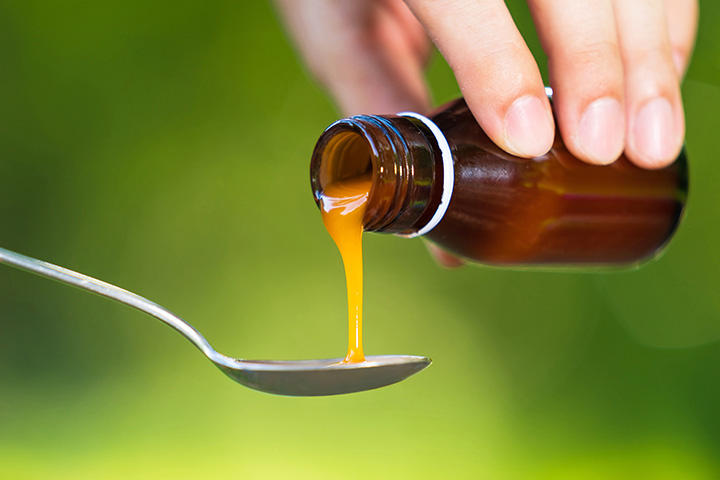
Image: iStock
There’s always a lot of buzz surrounding anything related to pregnancy, and fertility is no different. Over the decades, people have suggested some pretty creative quirks they think aid in conception. As if the process of getting pregnant wasn’t stressful enough! There’s always that group of relatives, friends and aunties ready with unsolicited advice. But is there any truth to these old wive’s tales? Figuring out what foods to eat, exercises to do, or random routines to follow to conceive quickly can be arduous. And sifting through the mistruths will only overwhelm you further. Moreover, following through with these misinformed actions will leave you frustrated and agitated. So, it is important not to fall prey to these baby-related myths.
Here are 5 fertility myths you shouldn’t fall for:
1. Myth: Breastfeeding Is Birth Control
Image: IStock
To be fair, there is some truth to this one, but it’s just misconstrued. Breastfeeding your baby can result in keeping a woman period-free for a longer time (1). This has been taken to mean that they are less fertile. But it is important to know that not all women experience this effect making it risky to rely on breastfeeding as your only form of birth control, especially for long-term breastfeeders. However, there are 3 signs you can look out for to tell if breastfeeding really is cutting down on your fertility levels (2). (Please note that all 3 signs must be present)
- The complete lack of period after delivery. This does not include slight bleeding or spotting after delivery.
- It has a higher chance of affecting fertility levels if you are exclusively breastfeeding your baby for a long duration. If you are breastfeeding the baby on demand throughout the night and day without any additional liquid or food, it will have a bigger influence on your fertility levels.
- If your baby is less than six months old, your fertility levels may be considerably low.
However, there is still a slight chance of mothers conceiving even with all these conditions present. If you want to take a break and ensure that you don’t conceive soon, it’s best to get on your favored form of contraception.
2. Myth: Drinking Alcohol Will Affect Your Fertility
Image: IStock
Have you ever heard of the phrase “Everything in moderation”? Nothing can be truer when it comes to this myth. Having a glass of wine or champagne at an event or a cosmo while hanging out with your girls won’t derail your plans to conceive. However, binge drinking or tossing down one too many will put your body through the wringer and can have a lingering effect on your fertility (3). Keep in mind that this affects both men and women, so you and your partner should be on a one drink limit until you’re pregnant. Drinking to excess can lead to irregular periods which will adversely affect your fertility, making it hard to chart or track your ovulation period. So make sure to drink responsibly and lightly.
3. Myth: Eating Yams Will Help You Conceive Twins
Image: IStock
The same can be said in some cultures about eating two conjoined bananas! And just to be clear, this is completely bogus. But these rumors do stem from somewhere. Yams were first mentioned as a twin producing super veggie when researchers started looking at why an African Village called Igbo-Ora had one of the highest rates of twin-births in the world (4). They could not come up with any substantial cause other than their enthusiastic consumption of yams. And although yams and fertility have been linked together in several instances, scientific proof linking the two is yet to be discovered.
4. Myth: Drinking Cough Syrup Will Help You Conceive
Image: IStock
This little tale has been making its rounds since the 80’s and we think it’s about time you stopped believing it. This random theory sprung up due to one core ingredient used in cough syrup called guaifenesin. A couple of decades ago it was considered to be a potential fertility booster by thinning your cervical mucus (5). This mimics the way it thins down mucus in your nasal cavity. This will allow for an easier time when the sperm travels to the egg. But there are no scientific studies that have proven this theory to be legitimate. Moreover, there are several ingredients in cough syrup that aren’t good for fertility, such as antihistamines.
5. Myth: Being On The Pill For A Long Time Will Delay Pregnancy
Image: IStock
This isn’t true at all. If you are a regular pill user, your menstrual and ovulation cycle should be back on track in a matter of weeks. Your cycle may vary depending on the kind of birth control you were on but not by much. You will have every success getting pregnant, even within the first year of stopping birth control.
We know that dealing with fertility and the pressure of conceiving and finally starting the family of your dreams can seem daunting and overwhelming. But you have nothing to fear. Now that you are aware of these myths, you are better prepared to get pregnant. Have we missed out on any wild fertility mths? Let us know in the comments section!

















